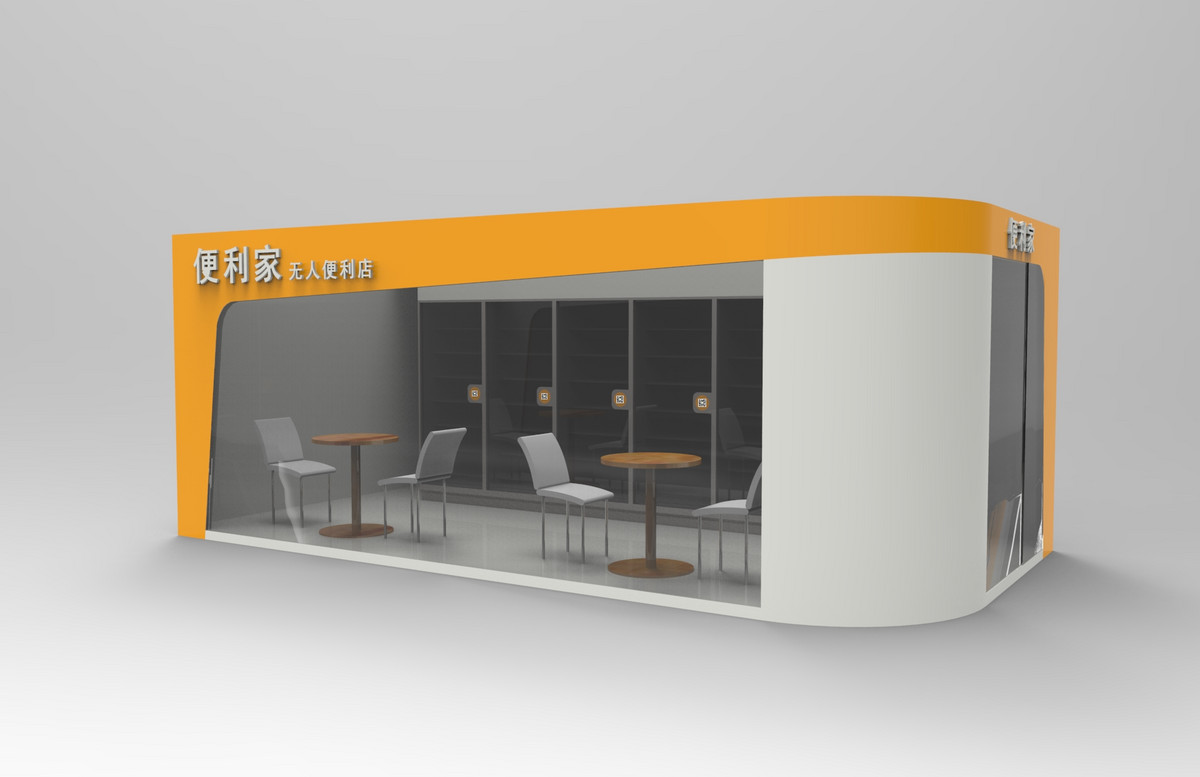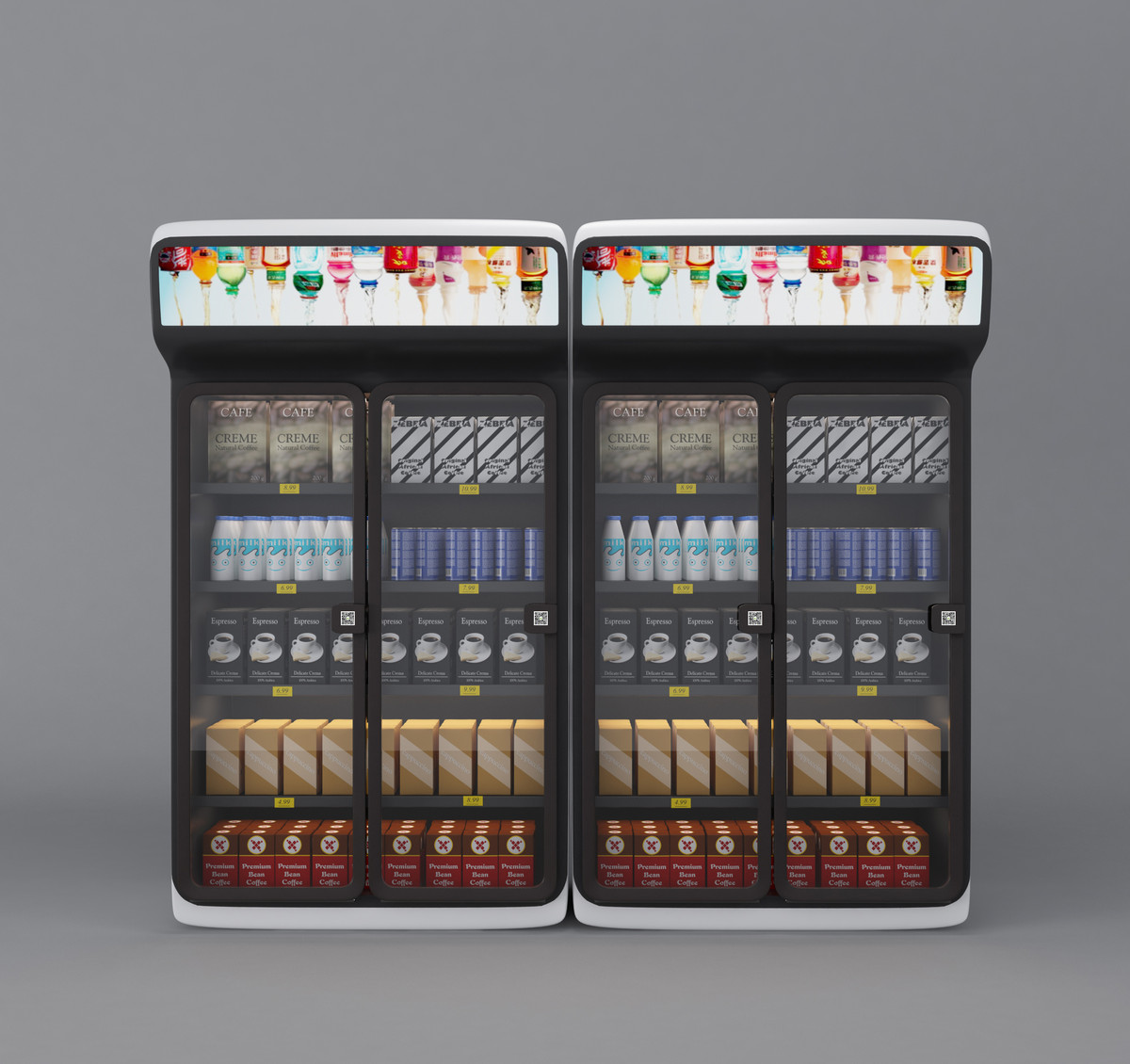Telephone : 400-123-4567
36Kr learned that the unmanned convenience store "Convenience Home" has received millions of yuan in angel round investment, and the capital is Feng Tao of Lianchuang Yongxuan.
When the trend of unmanned convenience stores is right, many players such as Colorful Fruit Box, F5 Future Store, Deep Blue Technology, Easy Go, etc., Amazon, Lawson, Alibaba, Walmart and other giants have also tried the water.
"Convenience Home" was founded in March 2017 and is located in Shanghai. Convenience Home has two products: micro-unmanned convenience stores and medium-sized unmanned convenience stores. Compared with a group of players, Convenience Home's difference is: flexibility.
Convenience home's "miniature unmanned convenience store", the smallest unit covers an area of less than 1 square meter (0.68 square meters), and the location is more flexible, including subway stations, office buildings, colleges and universities, etc. The cost of a minimum unit convenience store is about 13,000 yuan (possibly lower after mass production). The smallest unit of unmanned convenience store can be "put together" a larger unit area convenience store according to the distribution of the flow of people. If it is less than 100 people, one can be placed; about 100 people, two can be put together; if it is larger than 500 people, four can be put together. Convenience home's "medium-sized unmanned convenience store" is put together by 6 miniature convenience stores. At the same time, tables and chairs are added in the space to provide consumers with a resting area, which can be placed in relatively open residential areas, parks, etc.

Technically, Convenience Home has set up RFID in each layer of shelves and sealed and shielded all corners to make the recognition rate higher. The process is very simple. Use Alipay to scan the code to open the door, take it and leave, and Alipay will automatically deduct the money (WeChat is negotiating). In the future, Convenience Home hopes to do palm print recognition on the door handle, and when consumers perform the action of "opening the door", they can identify it.
Conceptually, Convenience Home is actually closer to a vending machine. Founder Fan Shaowei believes that Convenience Home is an improvement over traditional vending machines. On the one hand, the business categories of traditional vending machines are mostly beverages and fixed-packed snacks, while Convenience Home will be mainly "fresh food" in line with health trends; on the other hand, the shipment process of traditional vending machines is to pay first and then ship. The display method of pipes makes space utilization low. If it is a fresh food product, it may be deformed in the process of falling. Convenience Home, on the other hand, can be stacked and densely arranged to make space utilization higher. "Under the same area, our release rate is twice that of traditional vending machines."

Convenience Home's product selection logic is to choose different products according to different venues, such as meeting the brunch needs of white-collar workers in the office building, providing bento, sandwiches, salads, etc.; providing snacks, braised flavors, bread, etc. in colleges and universities. Compared with the average customer unit price of the whole family (14 yuan), Convenience Home sets the average customer unit price at about 10 yuan. In addition, through the Mini Program, consumers can give feedback on the food they want to eat, and reverse guide the selection of categories according to the data.
In addition to micro and medium-sized convenience stores, Convenience Home also has a third aspect of business - the transformation of traditional mom-and-pop stores. The characteristics of offline mom-and-pop stores are different in size and area. Convenience Home provides an unmanned convenience store transformation plan. First, the mom-and-pop stores share site resources and share sales. Second, the franchise method has a higher profit ratio. On the one hand, small store owners do not need to guard the store for more than ten hours a day. On the other hand, in addition to unmanned sales, they can also extend other businesses to obtain more profits, such as milk tea, coffee, etc.
"Whether it is retail without anyone or someone, it is essentially a retail business," Fan Shaowei said. Since it is a retail business, in the layout of the outlets, it needs to stand in the overall perspective, "the most afraid is one hammer in the east and one stick in the west."
The rational layout of points, lines and surfaces can minimize operating costs and logistics costs. Two important factors need to be considered: the flow of people and the coordination of laying points. The idea of Convenience Home is to place a medium-sized unmanned convenience store in a place with dense traffic, and then layout 10 micro unmanned convenience stores within a range of 100 meters to form a "minimum replenishment unit", one person can be responsible for the replenishment of 20 devices.
As for the cost of RFID tags, Fan Shaowei holds an optimistic attitude. The current cost of tags is 0.5-0 yuan, but with the popularity of RFID in the retail market, the price of RFID tags will definitely decrease.
After this round of financing, Convenience Home will establish a trial operation point in Shanghai, medium-sized + micro unmanned convenience store, and is expected to lay 20 outlets. Currently, Convenience Home is seeking Pre-A round of financing to expand mass production and launch operations.
In terms of team, CEO Fan Shaowei graduated from Harbin Institute of Technology and used to be the northern region manager of Shangpai Software Channel Department. He is a Serial Entrepreneur. COO Wu Wei is a master of Shanghai Jiao Tong University and has continuously started businesses in the field of fast-moving consumer goods; CTO Peng Genggeng graduated from Shanghai University majoring in computer engineering and used to be a senior engineer of the ad platform department of Tencent OMG business group.
400-123-4567
138-0000-0000